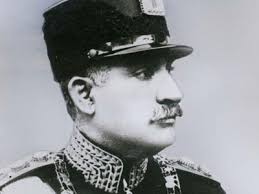Veteran of four wars, four enlistments, four branches: Air Force, Army, Army Reserve, Army National Guard. I am both an AF (Air Force) veteran and as Veteran AF (As Fuck)
Saturday, October 12, 2019
Conferences and the Delight of Meeting New Friends
I went to the 12th Annual Conference on Racism and Antisemitism at The Hannah Arendt Center for Politics and Humanities at Bard College. I was only able to attend the second day of the two-day conference, but I heard some great talks and even watched a controversy play out on stage.
But the best part was lunch.
I knew no one at the conference. The weather was cool and clear. Outside the hall where the conference was taking place, the organizers set up a tent and picnic tables. I sat at one end of an empty table. A small group was at the other end of the table. I introduced myself, but they were talking in hushed tones about the woman who left the stage in protest.
So I ate my sandwich as the tables filled up. Then a group of five formed around me. I introduced myself as a Hannah Arendt Fan Boy--not an academic like most of the conference attendees. To my right was a quiet man who is a professor of history. To my left was Anna, a history teacher at a Bard-affiliated high school, a lawyer, an activist, and executive director of the The Conversationalist. Opposite me were two women about my age, Ellen and Kate. Eventually Kate left and her seat was taken by Amy who was the moderator of the panel with the controversy.
Through most of the lunch we did not talk about the conference, but about our different experiences of being Jewish in America. We had an especially lively discussion of when Jews became white. Kate was the only one who was not Jewish, but she grew up Irish-Italian Catholic post World War II. Her parents and family on both sides experienced discrimination both for religion and background when Irish and Italian Catholics were not quite white.
Ellen and I were the same age and grew up near big cities so could talk about being part of the big exodus of Jews to the suburbs after World War II. A half-million Jews served in uniform in World War II. The GI Bill made it possible for many Jews to buy suburban houses and get a college education. A million African-American soldiers served in uniform in World War II. They had very little access to GI Bill benefits, especially housing and education.
Anna's parents came to America from Russia in the 1970s. We talked about how different the experience of immigration was for blue-collar Jews like my grandparents in the early 20th Century and for her parents in the 1970s. Her parents speak Russian and identify as Russian. My grandparents and uncles spoke Yiddish and in no way identified with the Tsarist Russia they escaped.
Amy filled us in on the controversy on stage which has no explanation I can make simple.
I enjoyed the presentations, especially the deep dive into "The Great Replacement" conspiracy theory. The four panelists traced the origins of this particular Anti-semitic conspiracy to post-World-War-II France. It has been thoroughly debunked for anyone outside the lunatic world of the Alt-Right, Fox News, and the Trump White House, but inside those asylums it is a current threat to white nationalism.
When the torch-carrying Nazis at Charlottesville chanted "Jews will not replace us" they were quoting The Great Replacement conspiracy. The murderer of Jews in Pittsburgh believed the same.
As good as the presentations were, lunch was the most fun. Laughing and sharing stories and insights with bright people in lovely place is in its own way as good as life gets.
Subscribe to:
Post Comments (Atom)
Persia Renamed Iran in 1935 By a Nazi-Admiring Shah
Reza Shah Pahlavi, Nazi devotee In 1935, Reza Shah, founder of the Pahlavi dynasty felt the winds of history blowing across the world. He wa...

-
Tasks, Conditions and Standards is how we learn to do everything in the Army. If you are assigned to be the machine gunner in a rifle squad...
-
On 10 November 2003 the crew of Chinook helicopter Yankee 2-6 made this landing on a cliff in Afghanistan. Artist Larry Selman i...
-
C.S. Lewis , best known for The Chronicles of Narnia served in World War I in the British Army. He was a citizen of Northern Ireland an...



No comments:
Post a Comment